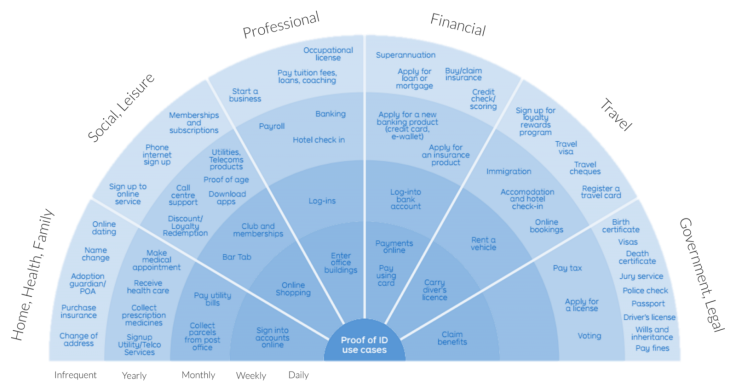The Illinois Blockchain Initiative creates self-sovereign identity at birth
In partnership with Evernym to create a secure self-sovereign identity for Illinois citizens during the birth registration process.

The Illinois Blockchain Initiative, a collaborative effort exploring blockchain's impact on government, has partnered with self-sovereign identity firm Evernym, to create a secure, self-sovereign identity for Illinois citizens during the birth registration process.
The concept will augment work from the W3C's Verifiable Claims Task Force and use the Sovrin Foundation's distributed identity ledger, said a statement.
Self-sovereign identity refers to a digital identity that remains entirely under the individual's control. A self-sovereign identity can be efficiently and securely validated by entities who require it, free from reliance on a centralised repository.
Recently, the Illinois Blockchain Initiative partnered with Hashed Health, a US-based blockchain startup focused on medical applications, to see whether the tech can help streamline how medical licenses are issued and tracked.
Jennifer O'Rourke, Blockchain Business Liaison for the Illinois Blockchain Initiative, said: "To structurally address the many issues surrounding digital identity, we felt it was important to develop a framework that examines identity from its inception at child birth. Government has an important role to play in the development of any digital identity ecosystem. Identity is not only foundational to nearly every government service, but is the basis for trust and legitimacy in the public sector."
In the proposed framework, government agencies will verify birth registration information and then cryptographically sign identity attributes such as legal name, date of birth, sex or blood type, creating what are called "verifiable claims" or attributes. Permission to view or share each of these government-verified claims is stored on the tamper-proof distributed ledger protocol in the form of a decentralised identifier, said the statement. The identifier guarantees each attribute is cryptographically sealed and only accessible with explicit consent of the identity holder or in the case of a newborn child, his or her legal guardian.
Businesses and governments will be able to verify and authenticate citizens by requesting encrypted access to these verifiable claims. This minimises the need for entities to establish, maintain and rely upon their own proprietary databases of identity information.
"This architecture allows us to bridge the best of both worlds, combining government's robust infrastructure for identity verification with a platform engineered for the digital identity ecosystem. This digital identity system is extensible, inter-operable and at the same time ensures the utmost security, privacy and user-agency," said Cab Morris of the Illinois Blockchain Initiative. "Additionally, this model for digital identity can extend beyond the boundaries of government and has broad applicability for many products and services in the private sector."
A formal announcement of the project will be made on 1 September by Evernym's Chief Trust Officer Drummond Reed at the MyData2017 Conference in Helsinki, Finland.
Reed said: "The successful transition to an identity ecosystem that is truly self-sovereign requires conversion of 'breeder documents', such as birth certificates, which serve as the basis for obtaining other documents. Digitising these foundational documents in a state the size and importance of Illinois will make a major contribution to the larger effort of solving the online identity problem."
© Copyright IBTimes 2025. All rights reserved.






















